Top 10 Disasters in China Since 1949
Since China`s founding in 1949, many kinds of disasters took place in China: flood, earthquake, drought, famine… However, Chinese people are strong and have overcome such difficulties and now are becoming powerful in the world. Here I compiled a list of China`s most sever disasters since 1949.
1. 1959-1961 Great Chinese Famine
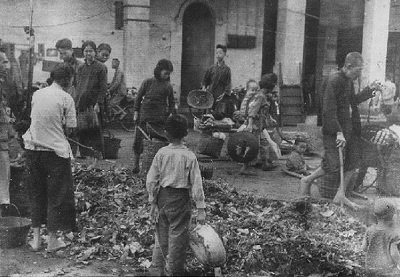
This is the largest famine in human history which took place in China during 1959-1961. It was estemated that more than 30 million were dead during the famine. To compare this number with other major human death tolls, World War II may have killed 80 million people in total. Drought, poor weather, and the Great Leap Forward Policy caused famine.
2. 1966-1976 Cultural Revolution

The Cultural Revolution was a social-political movement that took place from 1966 to 1976. It was mistakenly launched and led by Mao Zedong who wanted to enforce communism in China by removing capitalist elements from China. Unfortunately, it was exploited by two counter-revolutionary cliques respectively headed by Lin Biao and Jiang Qing, and brought great calamity to the country and the people, causing the most serious setbacks and most damaging losses to both since the founding of the People’s Republic of China.
3. 1976 Tangshan Earthquake
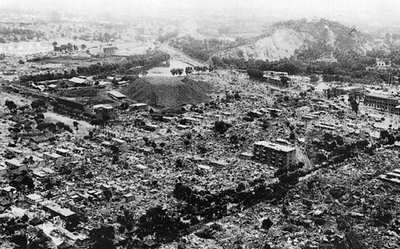
On July 28, 1976 a magnitude 7.8 earthquake hit the sleeping city of Tangshan, a city in north China`s Hebei Province. The earthquake killed some 242,000 people, making it the deadliest earthquake of the 20th century.
4. 1987 Daxing’anling Wildfire
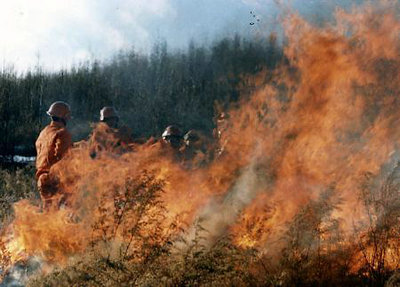
The 1987 Daxing’anling Wildfire was a major wildfire in the northeast Daxing’anling in Heilongjiang Province. The fire began on May 6, 1987 and the burning lasted almost a month. The fire covered about 10,000 square kilometres of which 6500 square kilometres was forestry.About 266 people were wounded and 211 died in the sea of fire with 50,000 left homeless.
5. 1989 June Fourth Incident
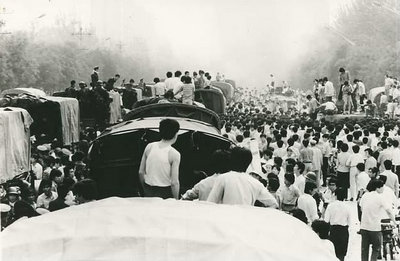
The Tiananmen Square protests of 1989 were student-led popular demonstrations in Beijing in the spring of 1989. More on wikipedia
6. 1998 China Flood
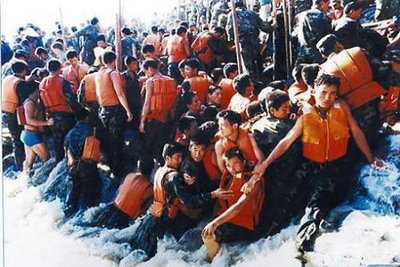
China suffered massive flooding concentrated southern China during the 1998 summe The heaviest rainfall was an incredible 68.28 inches during the June-July period. According to the data from China government, 3656 people were killed by the floods and 14 million people were homeless. The flood also caused over $20 billion in estimated damages.
7. 2003 SARS
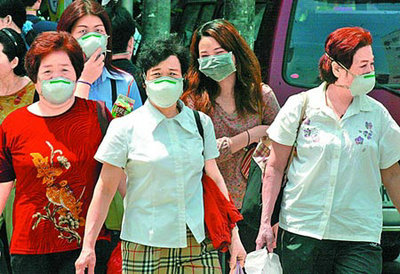
SARS (Severe Acute Respiratory Syndrome) is a viral respiratory disease caused by the SARS corona virus. Between November 2002 and July 2003, an outbreak of SARS in South China and then the World nearly became a pandemic, with 8,273 cases and 775 deaths worldwide (9.6% fatality). The total global economic loss was amounted to $ 59 billion, of which China was about 17.9 billion Yuan, Hong Kong $ 12 billion.
8. 2008 Chinese Winter Storms
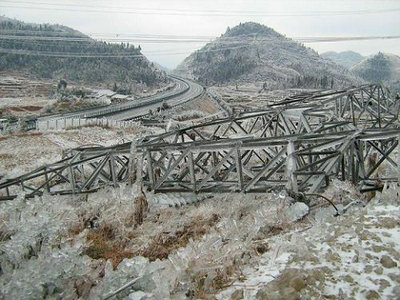
The 2008 Chinese winter storms affected large portions of southern and central China starting from 25 Jan to 6 Feb 2008. The storm affected most of the area with heavy snows, ice and cold temperatures. It has become China’s worst winter weather in half a century. According to some media sources the storms were directly responsible for at least 129 deaths.
9. 2008 Tibet Riot
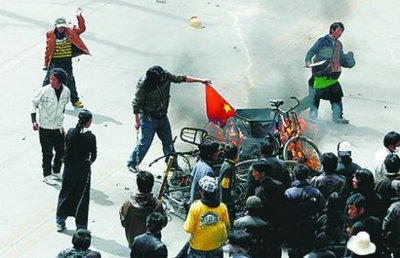
The riots in Lhasa on March 14th, 2008 are the most serious incident in the region for decades. It started with street protests by monks, but later descended into rioting, burning, looting, and killing.
10. 2008 Wenchuan Earthquake
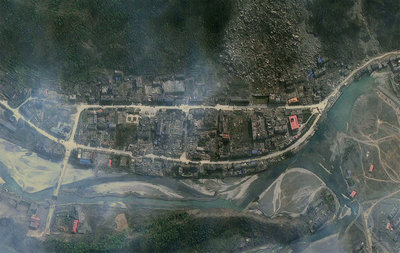
The 2008 Sichuan Earthquake (also known as Wenchuan Earthquake) was measured at 8.0 Ms on Monday, May 12, 2008 in Sichuan province, killing 69,195 people, with 18,392 missing. The earthquake left about 4.8 million people homeless


Peter,
Blaming the disaster that was the Cultural Revolution on “two counter-revolutionary cliques respectively headed by Lin Biao and Jiang Qing” seems very strange, at least to this Westerner.
I wonder if you could fill us in on your sources and the viewpoint in which you call these two counter-revolutionary. I’d be interested, too, in knowing what you mean by their “exploiting” the Cultural Revolution. What would the Cultural Revolution have been like without them, in your opinion? And what is it you think they were trying to accomplish?
Finally, why do you think this, and what sources can you point us to to understand your views better?
Many thanks,
-dlj.
My source is our history textbook.
Peter,
OK, now in what sense does your history book say that Lin Biao and Jiang Qing were “reactionaries”? The conventional view is that Mao’s wife was a hyper-Maoist, quite the opposite from being a reactionary, so I’m wondering who’s theory is gonig around now, and just exactly what the current theory is?
In the case of Lin Biao, th man was Mao’s anointed successor, and the two of them had worked — and walked, in the Long March — side by side for many years, so more than just a single word of name-calling is needed for us to get an idea of what happened here.
I’d appreciate anything you can give us to flesh this out.
Best wishes,
-dlj.
Here the idea from china.org.cn is similar to our text book. The link is http://www.china.org.cn/english/features/45960.htm
Peter,
Thanks. Very interesting.
-dlj.
how bout blaming the west for imposing sanctions, and embargos against China. that sounds much more plausible to me, but it seems like everyones afraid to look at it from that angle. we only hear about history through the viewpoint of reactionaries. i mean theres a long clear record of western oligarchs using sanctions and embargos to massacre millions upon millions of people. in fact, western oligarchs are still doing that as we speak. i always hear the corporate media talking about how north koreans are starving but usually omit the sanctions role in all of it. the corporate media always talks about censorship, but never about its own.
Vic,
The West, and particularly the English oligarchy of the 19th Century have much to apologise to China for. I’m not sure what you mean by “sanctions” in the case of China. There have been no Western ssnctions against China in recent years, and none that I know of had any connection to the horrors of the Cultural Revolution.
In the case of North Korea there are currently limited sanctions against it, in part in retaliation for its violation of its promises under the peace-nukes-for-no-bombs deals.
During the recent periods of starvation, brought about by the mismanagement of a bunch of crypto-Marxist loons — there’s an oligarchy if you want to look for one — the West was shipping food to, not levying embargoes on, north Korea.
-dlj.